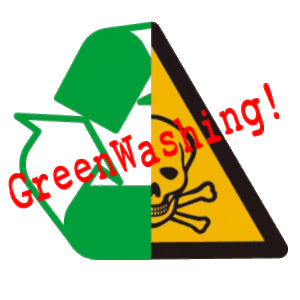Sara Lee’s “EcoGrain” – The Perfect Example of Greenwashing

In case you missed it, organic industry watchdog the Cornucopia Institute called Sara Lee out on its Earth Grains bread campaign. In a press release, the watchdog slammed the brand’s campaign (Sara Lee Hijacks Organics). Sara Lee made the bold claim that the “Eco-Grain™,” used in small proportions in its Earth Grains brand breads, is more sustainable than organic grain. Now that’s pretty ballsy.

Sara Lee quickly responded to the Cornucopia Institute’s charges by changing some language on the brand’s web site and issued a clarification statement. The company stated that its claims about being better than organic was a “misunderstanding” and the company has been “completely transparent about the environmental benefits” of the Eco-Grain™ growing methods.
Charlotte Vallaeys, a Food and Farm Policy Analyst at The Cornucopia Institute states in their press release, “Corporations like Sara Lee clearly want to profit from consumers’ interest in ecological and healthy food production. But unlike organic companies, Sara Lee is doing practically nothing to ensure its ingredients are truly ecologically produced…… It’s a crass example of a corporation trying to capitalize on the valuable market cachet of organic, while intentionally misleading consumers—without making any meaningful commitment to protect the environment or produce safer and more nutritious food.”
The single feature that Sara Lee ran with and turned into a huge greenwash campaign, is the production of Eco-Grain™. The Eco Grain farmers use satellite imagery that reduces their fertilizer usage by 15%. It is known as “precision agriculture” or “variable rate technology” that helps apply precisely the right amount of fertilizer every time to maximize yield and grain quality.
The Cornucopia Institute, points out that the production of Eco-Grain™ differs very little from most conventional grain producers who use petroleum-based fertilizers, pesticides and fungicides, and have little in common with certified organic farmers.
In contrast, federal law prohibits organic farmers from using synthetic fertilizers and toxic pesticides that are commonly used on wheat fields, including the Eco-Grain™. The Cornucopia Institute’s press release states, “One such pesticide typically used in conventional wheat production is 2,4-dichlorophenoxyacetic acid (2,4-D), which EPA researchers have correlated with numerous birth defects of the respiratory and circulatory systems, as well as defects like clubfoot, fused digits and extra digits. Other research has linked the use of toxic pesticides on wheat fields to increased cancer mortality rates.”
Organic farmers enrich the long-term health of their soil and food by using natural fertilizers, compost and crop rotations, instead of damaging the earth and contaminating food with toxic chemicals.
The Institute also strongly objected to the Earth Grains’ campaign statement (now removed), Eco-Grain™ farming methods “…have some advantages over organic farming” – in that Earth Grains bread requires less land than organic farming. This claim however is not substantiated by scientific research.
The whole campaign as it stands now, still makes some broad sweeping claims about saving the earth. When you compare the Eco-Grain™ growing methods to organic farming, there is no comparison. Sara Lee is still using toxic chemicals that poison the earth and our food supply.
Perhaps if the folks who invested the money in the satellite precision technology for Eco-Grain™ had invested it in certified organic production, they might have saved a few dollars, had a bigger impact on the earth and green consumers.
Today, in a struggling economy, corporate integrity is more important than ever, particularly if you want to capture the growing “green” consumer dollar. The “green” consumer is getting more sophisticated and can’t be fooled by a veil thin “green” campaigns like this.

